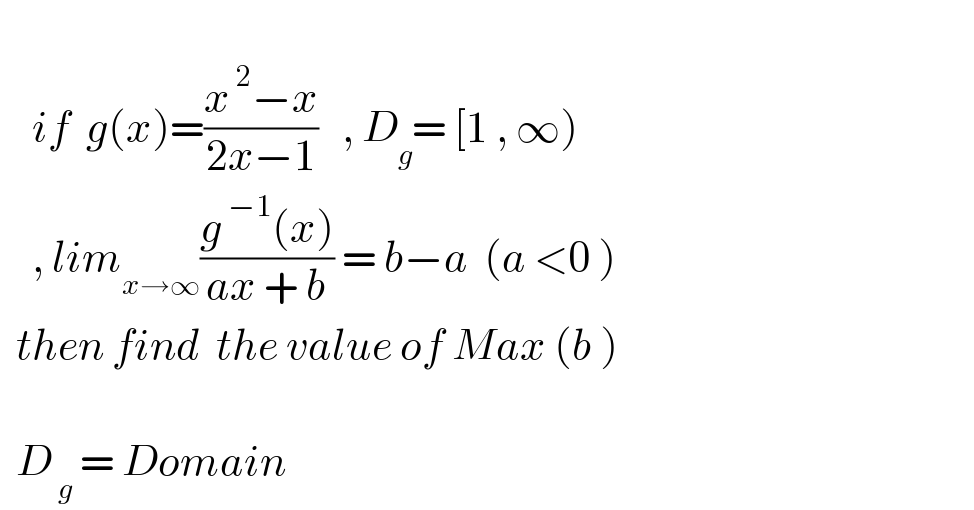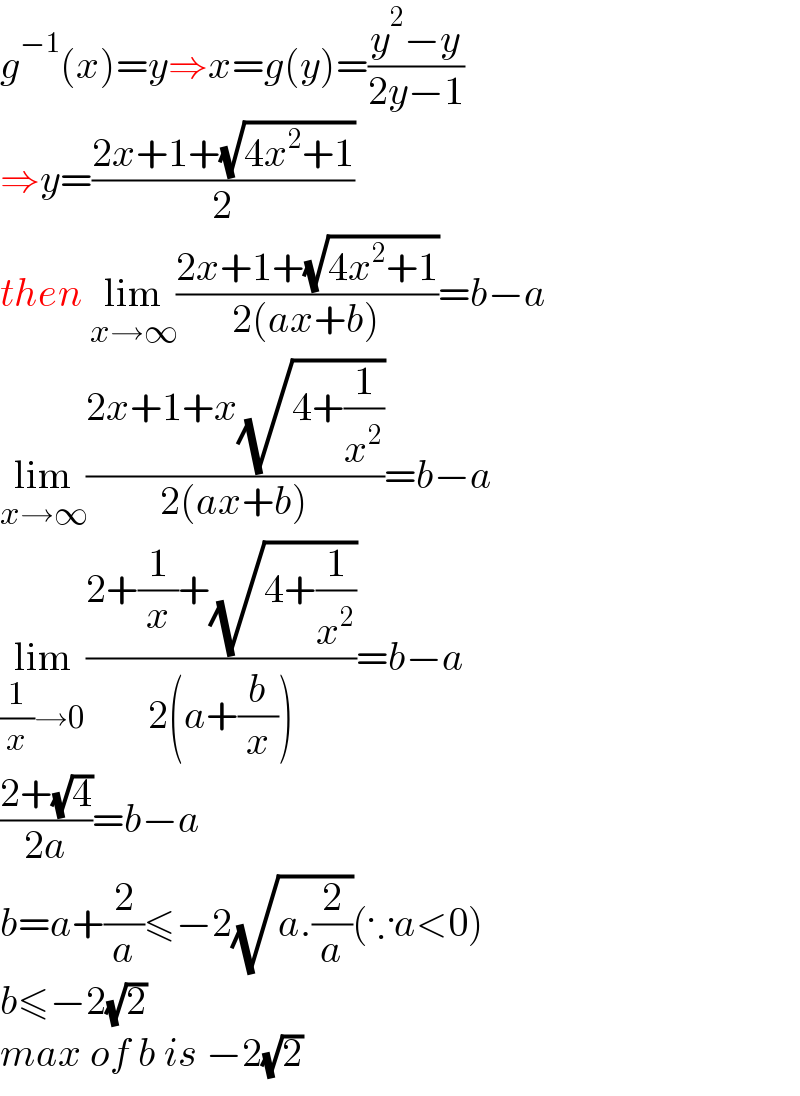
Question and Answers Forum
Question Number 146063 by mnjuly1970 last updated on 10/Jul/21

Answered by gsk2684 last updated on 10/Jul/21

Commented bymnjuly1970 last updated on 10/Jul/21

Commented bygsk2684 last updated on 10/Jul/21

| ||
Question and Answers Forum | ||
Question Number 146063 by mnjuly1970 last updated on 10/Jul/21 | ||
 | ||
Answered by gsk2684 last updated on 10/Jul/21 | ||
 | ||
| ||
Commented bymnjuly1970 last updated on 10/Jul/21 | ||
 | ||
Commented bygsk2684 last updated on 10/Jul/21 | ||
 | ||